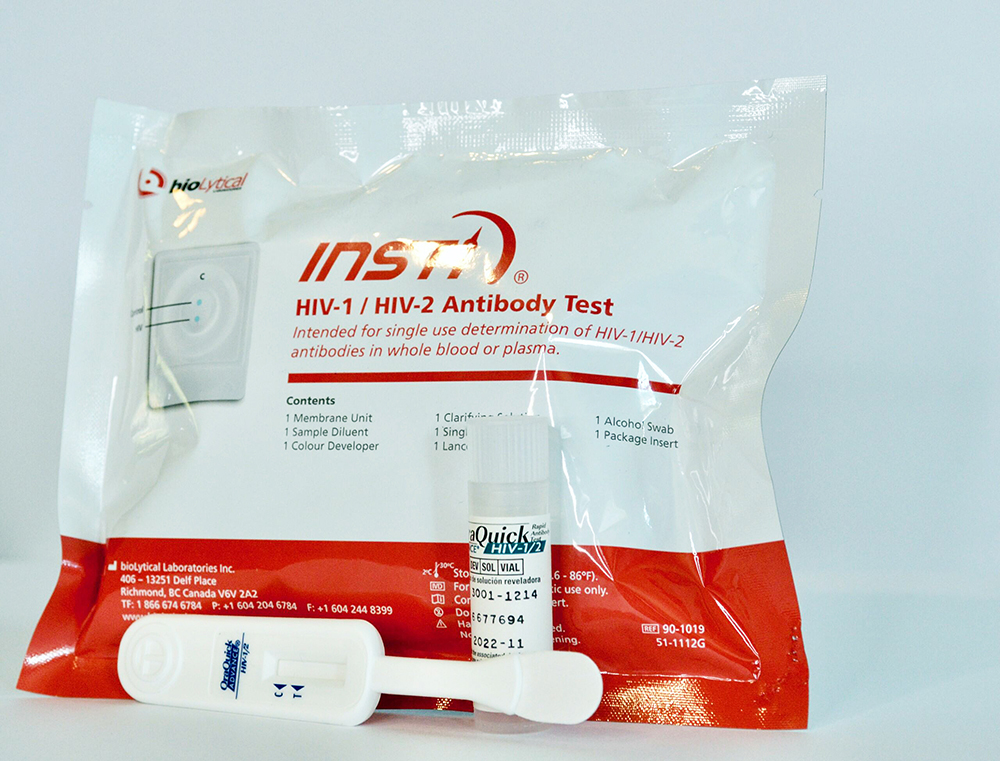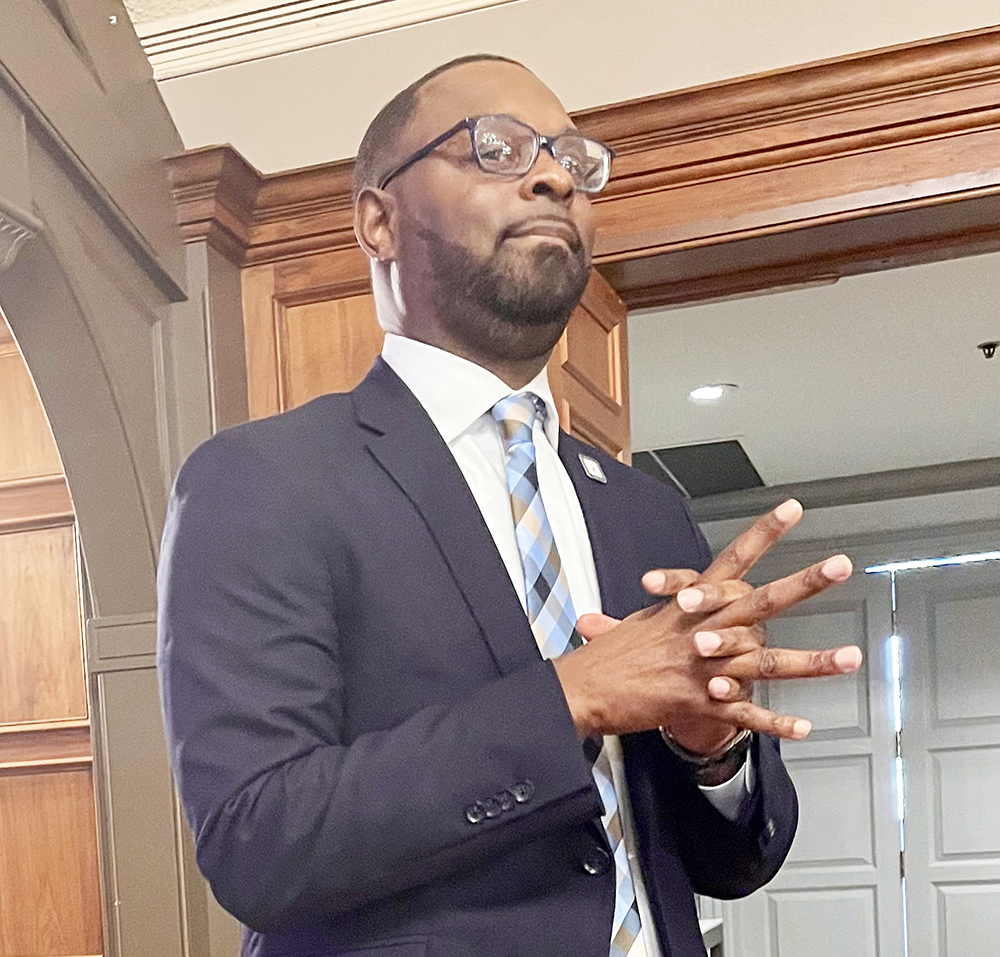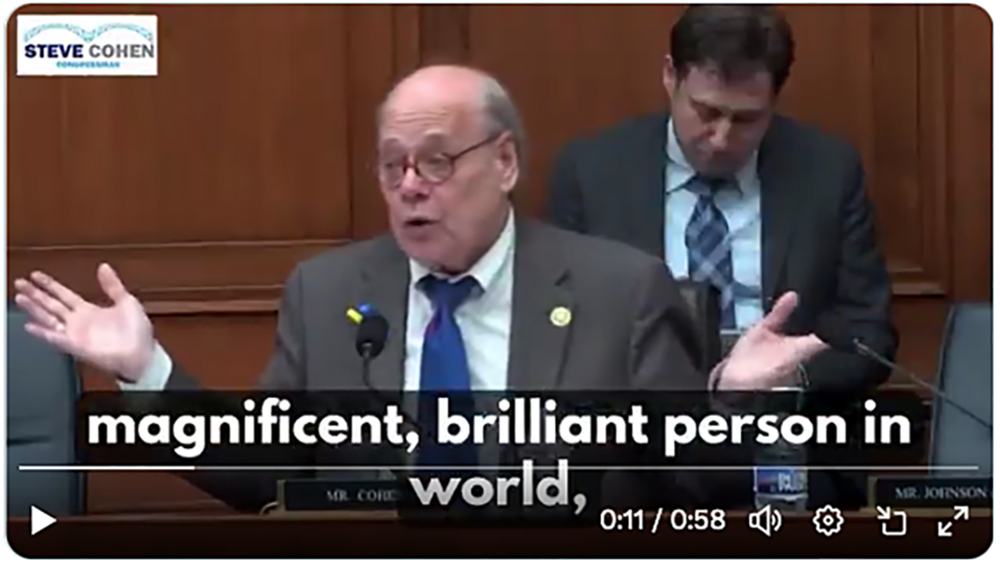Healthcare providers across Tennessee are scrambling to find new funding for HIV prevention following the loss of a critical federal grant.
Tennessee lost the funding earlier this spring amid deep spending cuts at the Centers for Disease Control and Prevention (CDC).
United Way of Greater Nashville, the organization that directs federal HIV funding to nonprofits and healthcare agencies across the state, told the Institute for Public Service Reporting its CDC agreement “expired” on the last day of May. That funding, totaling $4 million, represents roughly half of all federal dollars spent in Tennessee for HIV prevention and treatment.
The cuts are expected to hit especially hard in Memphis, where HIV infection rates are among the highest in the country.
“This moment calls for creativity in how we fund HIV prevention and care at the local level especially in states that do not have a political appetite for action,” said Adrian Shanker, a senior official for the U.S. Department of Health and Human Services (HHS) during the Biden administration.
The Ryan White program, the federal program that covers HIV treatment and treatment-related needs for people who couldn’t otherwise afford them, appears to be left intact.
But the cuts are expected to decrease the accessibility of birth control supplies and trigger layoffs of social workers and employees who help people navigate access to PrEP, or pre-exposure prophylaxis, a key drug for at-risk individuals that greatly reduces the odds of contracting HIV.
The loss of the federal funding comes as Memphis health officials face rising rates of new infections of HIV and syphilis and an uncertain future of disease surveillance at state and national levels.
Data shows a steady climb since the onset of the Covid-19 pandemic in 2020 when the Shelby County Health Department logged 238 new HIV infections. In 2023, the latest year data is available from both the county and state health departments, that number jumped to 353. This total does not include individuals who may have unknowingly contracted the virus.
Ron Bobal, founder of the Memphis nonprofit A Betor Way, which faces a loss of $125,000 a year in funding, said the cuts in prevention funding have implications beyond the spread of HIV. Bobal’s nonprofit specializes in harm reduction, providing clean needles and rapid HIV testing for intravenous drug users who may otherwise reuse needles and spread infections.
Add to that, Bobal said, the funding cuts often translate to a loss of jobs and an overall weakening of an already underfunded infrastructure of community-based organizations.
“This is scary to me, you know? It just means that categories of people who were already underserved are going to be in a worse situation than they were before,” Bobal said. “You take all the CBOs [community-based organizations] out of Memphis, … I don’t know what’s left.”
Great uncertainty
Tennessee healthcare providers had a verbal commitment from the CDC under the Biden administration to continue the HIV prevention funding for another year, but discussions abruptly stopped after President Donald Trump took office in January, according to people familiar with the matter who asked to remain anonymous to discuss sensitive information. The CDC later initiated procedures to close out and discontinue the grant, these people said.
As funding sources for sexual and reproductive health continue to dry up, upheaval at the federal level adds another layer of complication for HIV surveillance, prevention, and treatment.
Since President Trump took office in January, HHS has discontinued research into a promising vaccine for HIV, just months before trials were to start. The federal entity, which houses the CDC, also is hurriedly rehiring hundreds of workers fired earlier this spring under the direction of the Department of Government Efficiency, or DOGE, which was overseen for a time by billionaire Elon Musk.
The disruptions are “not insignificant,” Shanker said.
“There was a light at the end of the tunnel, so to speak,” he said. “These are setbacks that will require massive investments from nongovernmental sources, just to stay close to being on track to where we were before. And that’s really, really challenging.”
The challenges will trickle down.
In Shelby County, when a person receives a positive result on an HIV test, regardless of where they are tested, they are told to contact anyone they have had intercourse with within the past year. Positive test results are also reported to the health department, where staff contact tracers work to contact any at-risk individuals associated with the positive test.
The positive test result then goes on a journey. If a person is tested at a community organization or a healthcare office, results are reported to the county health department. From there, the numbers are sent to the state health department, where the data is compiled.
Often preliminary data — data that is still being analyzed and verified — is the closest the public can get to the most recent information about how HIV is spreading. The latest data available from both the state and county stops in 2023.
Information gathered locally about new HIV infections is collected by the CDC’s National HIV Surveillance System. However, that system was disrupted this spring when numbers of employees were fired as part of a DOGE-driven restructuring. In all, some 10,000 HHS employees were laid off in March. A federal judge in Rhode Island ruled earlier this month that the layoffs were likely unlawful; it’s unclear how that decision may affect the surveillance program.
The court ruling aside, the federal government already is rehiring hundreds of previously fired workers, HHS Secretary Robert F. Kennedy Jr. told a U.S. House of Representatives subcommittee on June 24.
Even if every fired CDC employee that coordinated federal efforts to contain and eliminate HIV is hired back, the disruption, as Shanker said, is a significant setback.
Setbacks hit hard in Memphis
For cities like Memphis, a national leader in new infection rates, setbacks at the federal level hit especially hard.
HIV infection rates prompted Shelby County Health Director Michelle Taylor to sound the alarm over the past year. In February, she met with local hospital leaders and urged the implementation of “opt out” testing for HIV for patients treated in emergency rooms, meaning patients would be universally screened for HIV unless they declined the test.
Regional One Health, a public hospital that treats historically vulnerable communities, has flagged HIV infections as a priority for years. All patients who are admitted to the hospital are screened for HIV, Angie Golding, the communications director, told The Institute.
Meanwhile, other healthcare providers are bracing for the cuts.
CHOICES Memphis Center for Reproductive Health, an organization that once provided abortions and still provides midwifery services, has endured both Title X cuts and CDC cuts.
CHOICES CEO Jennifer Pepper said her organization’s ability to provide subsidized sexual and reproductive healthcare is in jeopardy. Clinics that provide similar services are also feeling the squeeze.
For Pepper, the stripped funding is a familiar scenario. She observed multiple efforts, many successful, to cleave funding sources from organizations that provided abortions in the years before the U.S. Supreme Court overturned Roe vs. Wade.
Now, she’s watching colleagues that provide sexual and reproductive health services go through their first rounds of targeted defunding.
“I feel like those who have provided abortion care are, unfortunately, particularly prepared for this moment. But this is a new experience, in some ways, for HIV treatment providers and community-based healthcare providers,” Pepper said.
“Unfortunately, other providers are now experiencing the same thing.”







